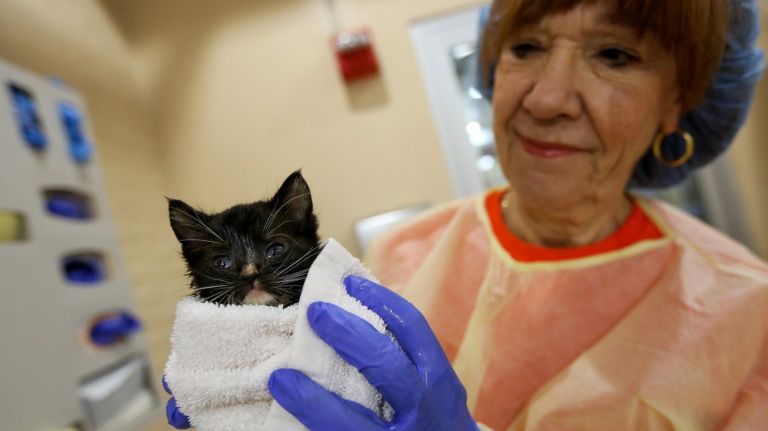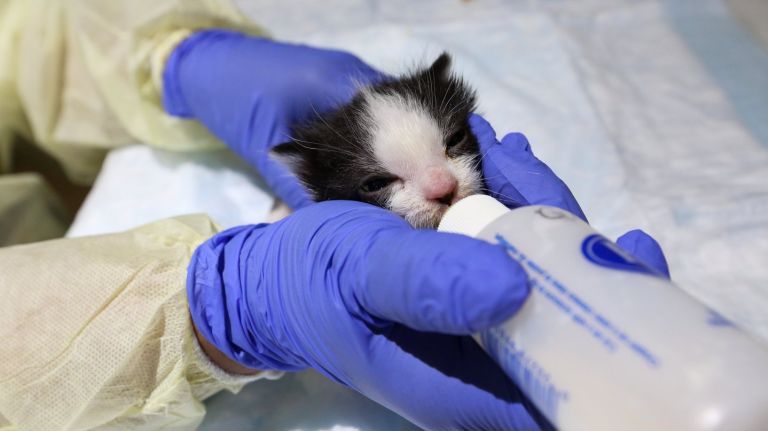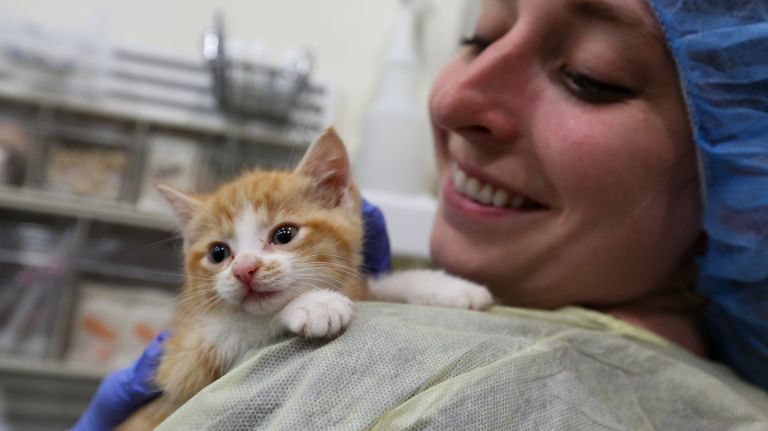
Springtime brings flowers, warm days and lots of kittens.
Animal shelters and rescuers across the five boroughs are being flooded with tiny felines who need special care.
Some may have been orphaned or separated from their mothers. Many others are plucked up by well-meaning people who think they are saving the kittens.
But they could be making the situation worse. Chances are, the mother cat might have just left her kittens briefly to hunt for food.

Without their mom, these babies need intensive care, including bottle feeding around the clock.
“We believe it’s best to wait and see if the mom returns,” said Gemma Smith, administrative manager of the ASPCA Kitten Nursery.
If that’s not possible, a network of rescuers, staff and volunteers is needed to step in and raise them.
Key to that effort is the nursery, which took in 1,582 kittens last year between April and October — a time referred to as “Kitten Season” in the animal rescue community.
So far, 209 kittens have arrived at the nursery on East 91st Street in Manhattan since it opened for the year about three weeks ago.

Many kittens come to the site through a partnership with Animal Care Centers of NYC, a nonprofit contracted by the city to handle all its stray and homeless animals.
ACC needs the help. It is the only shelter in the city required to take in all animals that come through its doors. Last year, ACC shelters received 5,000 kittens. Already, 1,000 kittens have arrived in 2018.
Smith said all the kittens are medically evaluated before being placed in one of the nursery’s specialized sections. The facility is staffed 24 hours a day during this busy time.
The youngest kittens must be bottle fed every two or three hours. During these early weeks, they rely on their mothers for all their food and help with bodily functions and hygiene.
Staffers try to mimic those efforts as best they can. For example, a toothbrush is used to gently brush a kitten’s fur — something a mama cat would do with her tongue.
Older kittens that can eat on their own are housed in another part of the nursery, where staff and volunteers play with them and make sure they are eating well and gaining weight.
“This socialization and enrichment is very important,” said Smith. “It keeps them interested and they get used to human smells and touches.”
The nursery also takes in mama cats, known as “Queens,” and their litters. Those families get space in a quiet part of the nursery.
Usually around the 8-week-old mark, kittens can be adopted — only after they are spayed or neutered.
Smith said this is the first year the ASPCA is allowing some of the “bottle babies” and younger cats to be cared for at temporary foster homes.
“They get to be in a home environment and we can take in more kittens,” she said.
ACC is looking for volunteers to help foster some of its kittens until they are old enough to be adopted. The need is especially great on Staten Island.
The nonprofit is hosting a “Kitten Shower” on Saturday from noon to 3 p.m. at the Manhattan and Staten Island shelters, which will also serve as an orientation for potential fosters. The shelters are at 326 E. 110th St. and 3139 Veterans Road West, respectively.
Animal lovers who can’t foster can help homeless animals by donating items from the group’s Amazon wish list, which includes food, towels, blankets and toys.
“Kittens don’t require a ton of space, they just need places to be around each other and to frolic — it’s so much fun,’ said Katy Hansen, a spokeswoman for ACC. “They are perfect for tiny New York City apartments.”





































